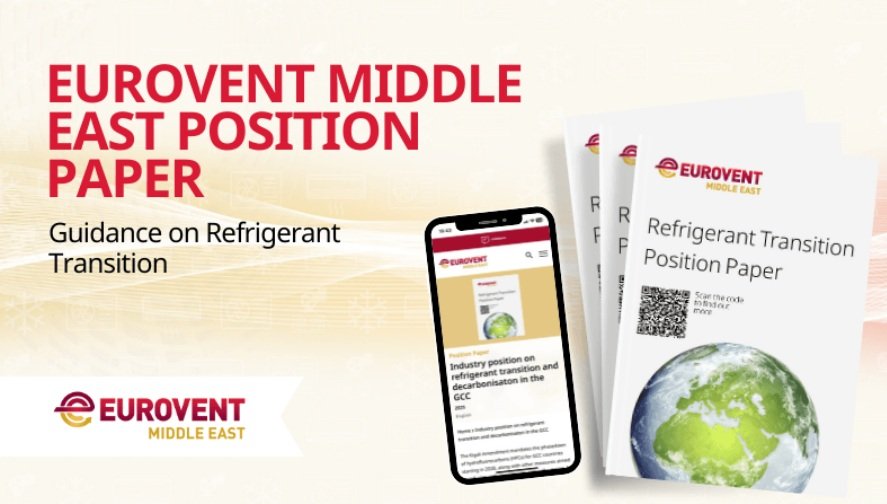Eurovent Middle East issues guidance on refrigerant transition in GCC
Eurovent Middle East has published a new guidance document addressing the upcoming transition away from HFC-based refrigerants in the Gulf region. The move follows warnings raised during the HVACR Next Generation Congress in Riyadh on 28 October 2025 about potential supply shortages of hydrofluorocarbons (HFCs) due to rising cooling demand.
The guidance comes after Saudi Arabia ratified the Kigali Amendment in September, committing GCC countries to begin phasing down HFC refrigerants. The schedule includes a baseline freeze in 2028 and gradual phase-down from 2032, with 10% reductions in HFC consumption or production every five years.
Markus Lattner, Managing Director of Eurovent Middle East, highlighted the risk of supply shortfalls: “The phase down will start from a baseline of HFCs produced or consumed over the period from 2024 to 2026. This means that if we add the accumulated growth in the building sector in the next years to the 10% reduction in the first step, we can very likely look at a sudden shortage of HFC based refrigerants in excess of 30%, when the first reduction happens in 2032. To prevent wider shortfalls and bottlenecks, it is imperative that industry and governments act now!”
The position paper outlines recommended actions for both industry and policymakers. These include the early adoption of HFC alternatives where safe, investment in workforce training for alternative refrigerants, and the harmonisation of safety and regulatory standards across the region to support systems using low global warming potential refrigerants.
The full guidance document is available for free download on the Eurovent Middle East website.
